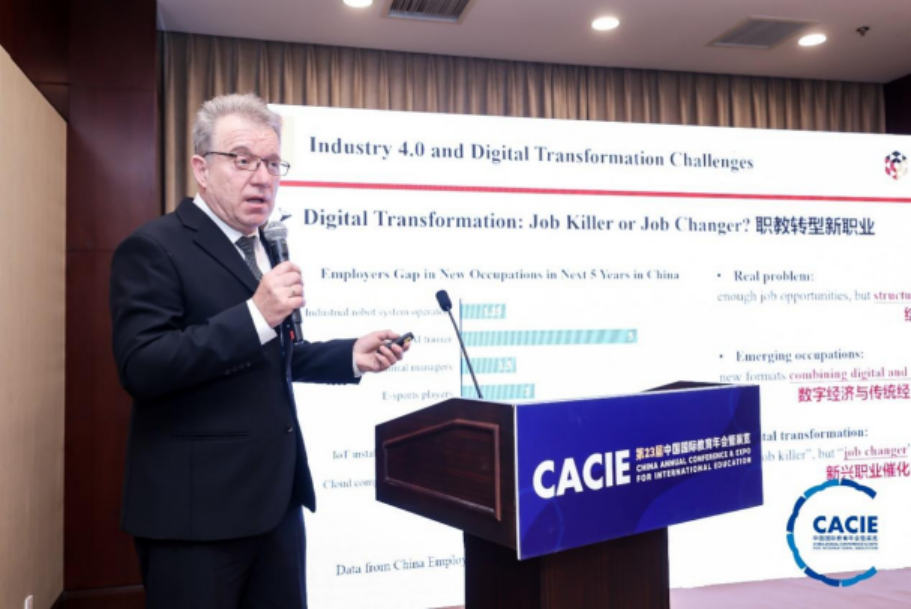
On February 16-18, the 23rd China Annual Conference & Expo for International Education was held by the China Education Association for International Exchange in Beijing. The annual conference consisted of a general meeting, CACIE night, keynote speeches, parallel forums, information sessions, program discussions and educational exhibits. TheSino-German Higher Vocational Education Innovation Center (the “Sino-German Center”)participated in the annual conference. Martin Fleischer, Director of theSino-German Center, was invited to give an expert report in the parallel forum “International Industry-University-Research-Application Integrated Innovation and Development”.
Experts and representatives from China, France, Italy and Germany were invited to the parallel forum “International Industry-University-Research-Application Integrated Innovation and Development” to discuss two topics: “Local Industry-University-Research-Application Innovation Research” and “International Industry-University-Research-Application Collaborative Innovation Talent Training Model”, with focus on how to use educational resources such as schools, enterprises and research institutions to effectively combine knowledge with practice. Zong Wa, Deputy Secretary-General of China Education Association for International Exchange, attended the forum and delivered a speech. Experts and scholars from the Jiangsu Food & Pharmaceutical Science College, Huaian Institute of Lanzhou University, Changchun Medical College, World Federation of Chinese Catering Industry, TOR CARBONE and Perlgord delivered keynote presentations to share local and international industry-university-research-application practice cases.
With the theme of "The Industry-University-Research-Application Road Driven by Dual-System Innovation - German Experience and SZPT Scheme”, Martin Fleischer focused on the dual-system theory and practice, shared the advanced experience of Germany in industry-university-research-application practice, and introduced how our college localized the German experience, and achieved fruitful results in the field of integration of industry and education. Martin Fleischer stated that different from the domestic vocational education model, the German dual-system education is dominated by industrial enterprises, which is more conducive to the industry-university-research-application integrated development, and can efficiently transform scientific research achievements. For the challenges facing vocational education in China, he put forward four suggestions: 1) establishing more higher vocational colleges; 2) improving the vocational education system; 3) improving the legal framework; and 4) strengthening enterprise leadership. (Huang Qingyu, International Office)
 School Motto:
School Motto:
 Search
Search
 School Motto:
School Motto:
 Search
Search